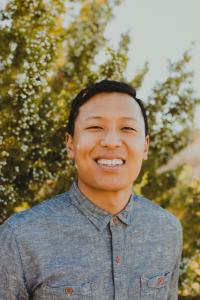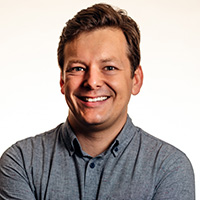Register HERE.
View FLYER
 Samuel Kye (2-2:30pm)
Samuel Kye (2-2:30pm)
Title: How White Neighborhoods Continue to Drive Residential Segregation in the Contemporary Metropolis
Abstract: This paper examines a puzzle lying at the intersection of two streams of demographic research: if residential diversity has surged (e.g. the decline of all-white neighborhoods), how and why does modern residential segregation persist? Through a series of technical and descriptive analyses, I argue that each of these trends can be reconciled through an underappreciated feature of the contemporary U.S.: a growing number of white households residing in a fewer number of select, predominantly white communities. I argue that these neighborhoods—"white havens”—allow diversity to rise in surrounding neighborhoods while simultaneously preserving broader trends of residential segregation. While predominantly white neighborhoods may have waned in number, they continue to retain widespread significance—both for white households and for racial residential segregation.
Bio: Sam is currently a Postdoctoral Research Associate with the Population Studies and Training Center working with the S4 research team at Brown University. He will be joining the Department of Sociology at Baylor University as an Assistant Professor beginning Fall of 2021. His research examines racial inequality in the metropolitan United States. He is particularly interested in the mechanisms that facilitate or prevent the formation of racially diverse and integrated neighborhoods. His other technical projects have examined—and sought to improve—the methods researchers use to assess neighborhood racial/ethnic change and stability. He also researches trends in Asian American (racialized) assimilation, with a keen interest in the rise of “ethnoburb” communities. You can find some of his work in Sociological Methods & Research, Social Science Research, Annual Review of Sociology, and Contexts. His research has been supported by the National Science Foundation and the Center for Research on Race & Ethnicity in Society (CRRES) at Indiana University.
----
 H. Jacob Carlson (2:30 - 3pm)
H. Jacob Carlson (2:30 - 3pm)
Title: The Urban Displacement Network
Abstract: Neighborhoods are often examined as isolated units of analysis, rather than as connected communities. As households change residences and move across the city, neighborhoods become dynamic components of the broader urban ecology. To show this, I aggregate household mobility patterns to their origin and destination neighborhoods. The result is that an urban mobility network emerges that connects neighborhoods with one another as nodes in the network. I show that certain neighborhoods become funneling points in the broader urban mobility network - specific places that households converge on, before moving to the farther reaches of the city. By comparing people who move "voluntarily" from those who move "involuntarily" - or were "displaced" - I show that these convergence points become hotbeds of displacement. Thus, we see how people's aggregate residential choices can create displacement pressure in certain neighborhoods.
Bio: Jake is an urban and political sociologist, focused on democracy, housing, and changing cities. His current research examines the various causes and consequences of gentrification and displacement - and the relationships between the two. You can find some of his work in City & Community, Urban Geography, Social Science History, and Metropolitics. Jake is currently a Postdoctoral Research Associate with S4 and the Population Studies and Training Center at Brown University. https://www.hjacobcarlson.com/
